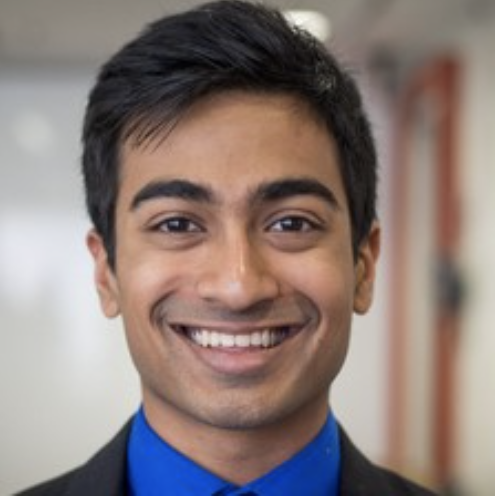Nik Marda ’21 has been named a 2020 Truman Scholar, along with Leya Elias ’21.
The scholarship, awarded in honor of former U.S. President Harry Truman, recognizes American students who plan to pursue careers in public service after college. Recipients are selected based on their “academic success and leadership accomplishments, as well as their likelihood of becoming public service leaders,” and receive $30,000 towards a public-service oriented graduate program. This year, the Truman Scholarship Foundation selected 62 students from 55 institutions for the honor.
Marda is a junior studying political science and pursuing a co-term degree in computer science with a specialization in artificial intelligence. He serves as an editor for the Stanford Technology Law Review and as co-director of technology for Stanford in Government. He is also a co-founder of the Stanford Open Data Project in collaboration with The Daily.
In high school, Marda became involved with public service through working to increase access to math education and enrichment for local students. At Stanford, he said, he realized that he could apply these quantitative skills to the public interest.
“The one event that I credit for my shift from wanting to work for a big technology company to committing to public service was the congressional hearings with Mark Zuckerberg during the Cambridge Analytica scandal,” Marda said. “Here it was evident to me that our elected officials did not have the technical expertise needed to properly regulate Facebook and other technology companies. After that, I realized that I needed to bring my technical skills into public service.”
Combining his passions for public service and technology, Marda built tools and pipelines for federal websites as a product management fellow at the National Institute for Health and worked on consumer protection and technology policy while interning for Sen. Amy Klobuchar (D-Minn.). He also spent a quarter studying data ethics in Oxford.
“I strongly believe that technology has a lot of promise for society,” Marda said. “But I am deeply concerned that the benefits of technology are going to be reaped disproportionately across socioeconomic and geographic lines. If we are not more thoughtful and careful about how we build, design, and regulate these systems, the broader societal implications could be quite dangerous.”
“I’m concerned that we don’t have enough leaders with a technical background for understanding these problems, and what’s left unchecked is that some of these new products and services could transform society and not all for the better,” he added.
Acting upon this concern, Marda worked on a proposal to increase the number of young civic technologists in the federal government. His work was acknowledged by the National Commission on Military, National, and Public Service in its report to Congress.
After graduating from Stanford, Marda hopes to use his Truman Scholarship toward studying law and public policy in graduate school.
“I want to learn about how governments harness and regulate emerging technologies in the past, and use that knowledge to work directly in the federal government to harness and regulate artificial intelligence,” Marda said.
Contact Sarina Deb at sdeb7 ‘at’ stanford.edu.
